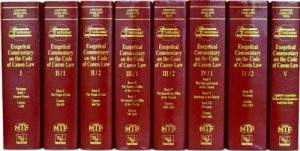I have only recently come to realise how much the glad tidings are under attack. In the past few weeks several things forced themselves on me. I had drafted a blog on the subject: Know about God or Know God. I may come back to this later – but this is more urgent.
Four things:
The Church Leader
For here have we no continuing city, but we seek one to come (Heb 13:14).
But he that is an hireling, and not the shepherd, whose own the sheep are not, seeth the wolf coming, and leaveth the sheep, and fleeth: and the wolf catcheth them, and scattereth the sheep. The hireling fleeth, because he is an hireling, and careth not for the sheep (John 10:12-13).

We went to an ‘open garden’ at the residence of a senior clergyman. The weather was perfect, and the gardens, specially the roses, were beautiful. We had the obligatory tea and cakes – very tasty. As we left, the curate himself was standing at the entrance shaking hands. I said to him, ‘You’ve created a paradise on earth; you won’t want to leave.’ He smiled and demurred, but really accepted what I said. I said, ‘Are you trying to make things better here’. To which he replied, ‘Of course!’ My retort: ‘Jesus died for my sins, and He is coming soon. I don’t want to stay here; I want to be with Him.’ He was at a loss what to say – my wife was flabbergasted. ‘Not even a recognition of the Lord.’
I looked at one of his recent sermons. He was arguing for hope for the vulnerable, admitting that they would have hope if Jesus had turned their lives around. Did our friend himself have hope?. He needs our prayers.
The Charismatic Church
Neither . . . foolish talking, nor jesting, which are not convenient: but rather giving of thanks. . . .Let no man deceive you with vain words: for because of these things cometh the wrath of God upon the children of disobedience. Be not ye therefore partakers with them.(Eph 5:4-7)
 I know this, that after my departing shall grievous wolves enter in among you, not sparing the flock. Also of your own selves shall men arise, speaking perverse things, to draw away disciples after them. (Acts 20:29-30)
I know this, that after my departing shall grievous wolves enter in among you, not sparing the flock. Also of your own selves shall men arise, speaking perverse things, to draw away disciples after them. (Acts 20:29-30)
A brother was talking to me about his daughter who belonged to an apostolic charismatic church which insisted on the overriding words of its leaders. Earlier he had been attended the church too. One of the sect’s leaders told him, ‘You obey your house group leader rather than the bible’. That finished him.
He had seen other churches like that – attractive in many ways, re-baptising more and more members especially amongst the young who liked the happy, uninhibited atmosphere and the music. It was satisfying to the flesh, but not to God. They say, ‘You need Jesus as your friend’. Little mention is made of sin, repentance, and the precious blood, though they do mention the risen Saviour. Money is important. I understand a leader said in his sermon, ‘If any of you have not signed a covenant for £X to be given to this church each week, you cannot be members and need to check you are believers’. What part of scripture does that idea come from? Oh yes! ‘I am not like other men; I tithe everything I gain!’ (Luke 18:12).
I am reminded of the recent sermon by Bishop Michael Curry at the recent wedding of Prince Harry and Meghan Markle. On one side it was a positive message of the love of God. But behind that is the suggestion of ‘All you need is love’ – a theme popularised in the 1960’s by John Lennon and the Hindu seeking Beetles. There may have been an acknowledgment that Jesus died, but not of repentance and faith in the blood.
They talk of the baptism of the Holy Spirit. Is it really of the Spirit, and is it baptised to the death of the Lord?
Formalism and Legality
Now therefore why tempt ye God, to put a yoke upon the neck of the disciples, which neither our fathers nor we were able to bear? But we believe that through the grace of the Lord Jesus Christ we shall be saved, even as they (Acts 15:10-11).

This is something that has dogged the church from its earliest days. The early believers were almost entirely Jewish: they were brought up under the law of Moses and took it into Christianity, and insisted that Gentiles kept the law too. Peter, a previously devout Jew, whom Paul had once to withstand, was clear to them in the above account of the Council of Jerusalem in Acts 15.
The flesh is content when there are boundaries, with liberty to do what we like within them. A child is brought up that way. Are we to remain children? Paul’s most severe condemnation was on those who would bring persons back under bondage (see the whole book of Galatians).
The Roman Catholic Church is, of course, the clearest example of legalism – and with that formalism, where so many features of the Jewish system migrated into a new quasi-Christian form of worship – priests, altars, vestments etc. Persons are kept unsure of salvation, and the fear of purgatory holds them in bondage. If only they knew the scriptures; if only they knew the Saviour!
But we see it closer to home. What started in the early 1800’s as a simple movement of believers under the Spirit of God, gathering separately to the Lord’s name forsaking formalism and legality appear to have split into several groups with some of this legalistic line of thinking. Why is it that as soon as liberty comes in, dear believers want (with the best of intentions) to mount a rear-guard action as to ‘standards slipping’. No one would doubt that the flesh wants licence – but let us present Christ. Be like Him; keep near Him. If the state amongst Christians is to be raised, present Jesus.
Liberalism and Political Correctness
They glorified him not as God, neither were thankful; but became vain in their imaginations, and their foolish heart was darkened. Professing themselves to be wise, they became fools, and changed the glory of the uncorruptible God into an image made like to corruptible man, and to birds, and fourfooted beasts, and creeping things. Wherefore God also gave them up to uncleanness through the lusts of their own hearts, to dishonour their own bodies between themselves: who changed the truth of God into a lie, and worshipped and served the creature more than the Creator, who is blessed for ever. Amen (Romans 1:21-25).
Much has been written about this. Militant secularists and humanists, supported by the media and many politicians have put acceptance of moral corruption and unholy relationships above God’s law. Confronting this can result in prosecution. Cases have been numerous.
Conclusion
Frederick Raven wrote ‘The gospel is very little understood by many believers. The defect is in preaching the benefitsof Christ’s death instead of CHRIST Himself. If anyone asked me what the gospel was, I should say, ‘CHRIST’ (Address on ‘The Gospel’ – FER’s Ministry Vol 14 page 157)
J B Stoney wrote in a letter, ‘I am more and more convinced that the real check to our spiritual growth is from some defect in infancy — an imperfect apprehension of the gospel. The death of Christ and all involved in it must be entered into before the value and greatness of the resurrection can be estimated.’ ( Discipline of the Servant No. 4 Letters vol. 1 page 190)
But let’s be thankful wherever the gospel is preached – God can use anything: Paul wrote, ‘I have you in my heart; inasmuch as both in my bonds, and in the defence and confirmation of the gospel, ye all are partakers of my grace. . . .But I would ye should understand, brethren, that the things which happened unto me have fallen out rather unto the furtherance of the gospel; so that. . . [I am] much more bold to speak the word without fear. Some indeed preach Christ even of envy and strife, and some also of good will; the one preach Christ of contention, not sincerely, supposing to add affliction to my bonds; but the other of love, knowing that I am set for the defence of the gospel. What then? notwithstanding, every way, whether in pretence, or in truth, Christ is preached; and I therein do rejoice, yea, and will rejoice (Phil 1:7-18).
What do you think? As always I value your comment either by email or by, better still, by leaving a comment on https://adoss.co.uk
General Data Protection Regulation (GDPR)
Like all other site owners, we are having to adhere to the new data protection regulations. We have updated our privacy policy. We keep the absolute minimum of information – mostly name, email address, and any other information a correspondent has shared with us, none of which is made public. Our mailing list is mostly by registration, referral, contact by social media, and with persons that the author knows personally, sharing Christian fellowship in some way. We are not reconfirming our list, but you are always at liberty to unsubscribe – see below.
In grace, your brother
Sosthenes Hoadelphos
June 2018
PS – My previous letter on ‘Eternal Punishment’ attracted much less comment than usual. Whilst we don’t preach judgment, is it a subject we are shy about? Think about it, how many of those in churches marked by the above, eternally lost? Comments?

